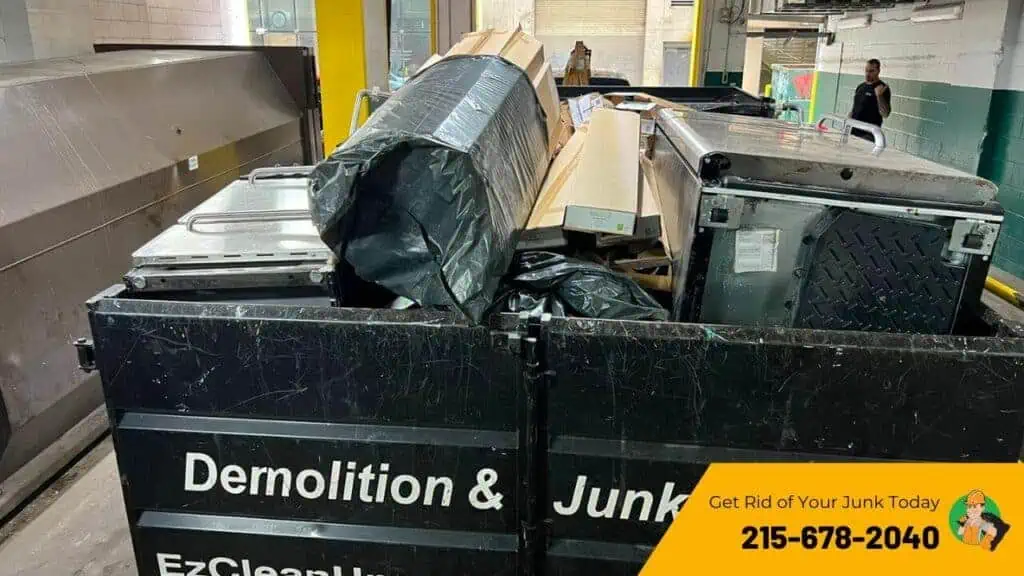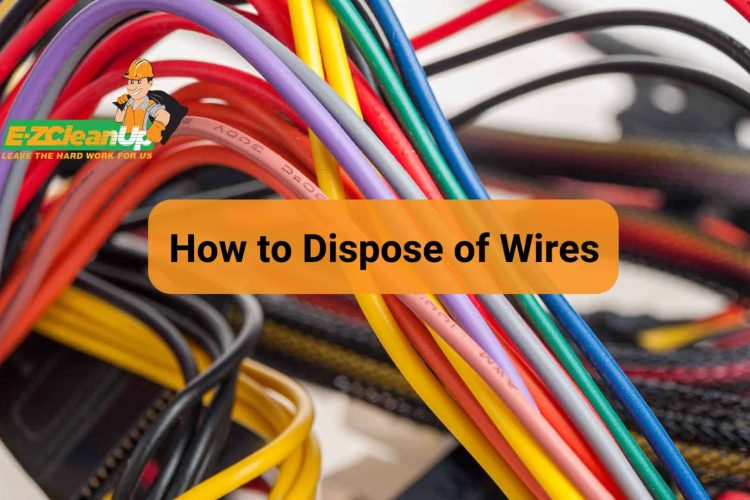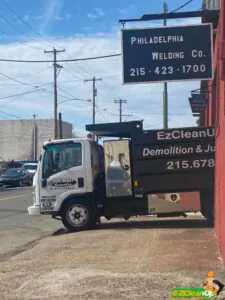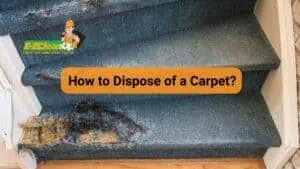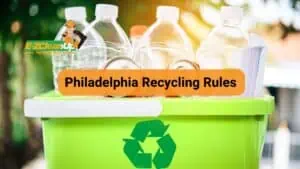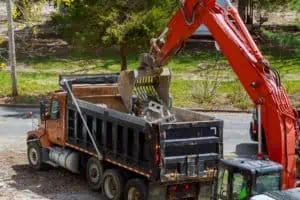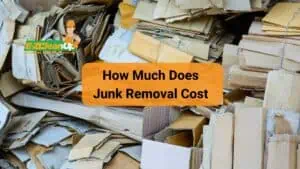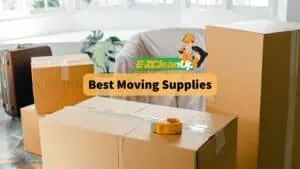To dispose of wires, recycle by identifying and extracting valuable metals like copper, sell to scrap yards, or donate to educational programs. For creative reuse, upcycle into art or home decor.
If you want to find out exactly how to dispose of wires, read our guide below.
Why is it Important to Dispose of Wires Properly
Improper disposal of electrical wires can have severe environmental impacts. One major concern is the leaching of toxic substances. They can release heavy metals and other contaminants into the environment when improperly disposed of in landfills.
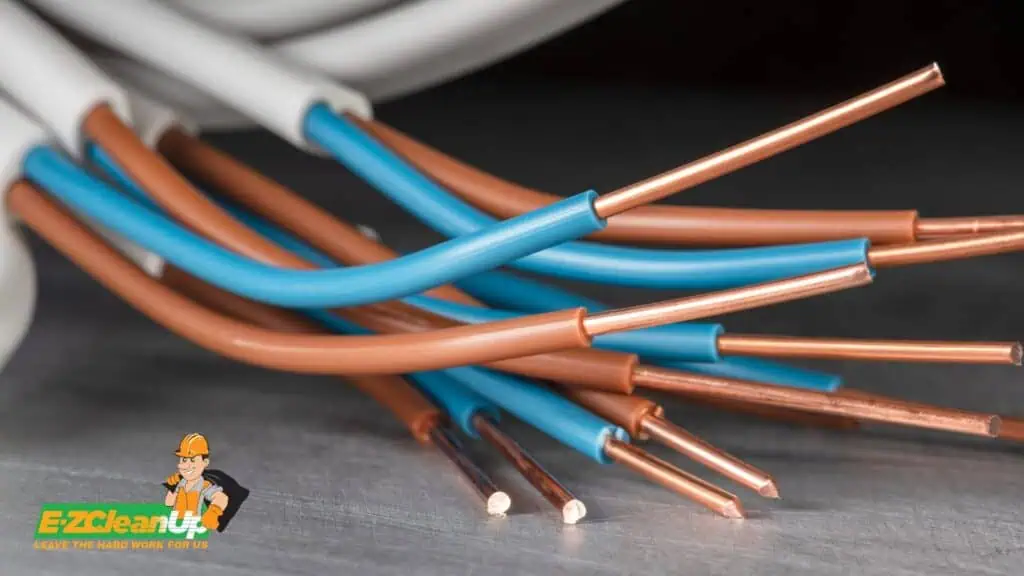
Identifying Valuable Components in Wires
To effectively recycle and sell old electrical wires, it’s crucial to identify valuable components. Copper is the most sought-after material in electrical wires due to its excellent electrical conductivity and value in the recycling market.
Wires are typically classified by gauge, with the American Wire Gauge (AWG) being a standard measure. A lower AWG number indicates a thicker wire, which usually contains more copper and is thus more valuable.
Where to Sell Old Wires and Cables
Once you’ve identified the valuable components, finding the right place to sell your old wires and cables is the next step. Scrap metal yards are often interested in purchasing old wires, especially those with a high copper content.
Additionally, there are specialized recycling centers that focus on electronic waste (e-waste) and may offer compensation based on the type and weight of the materials. It’s important to contact these facilities directly to understand their specific requirements and pricing.
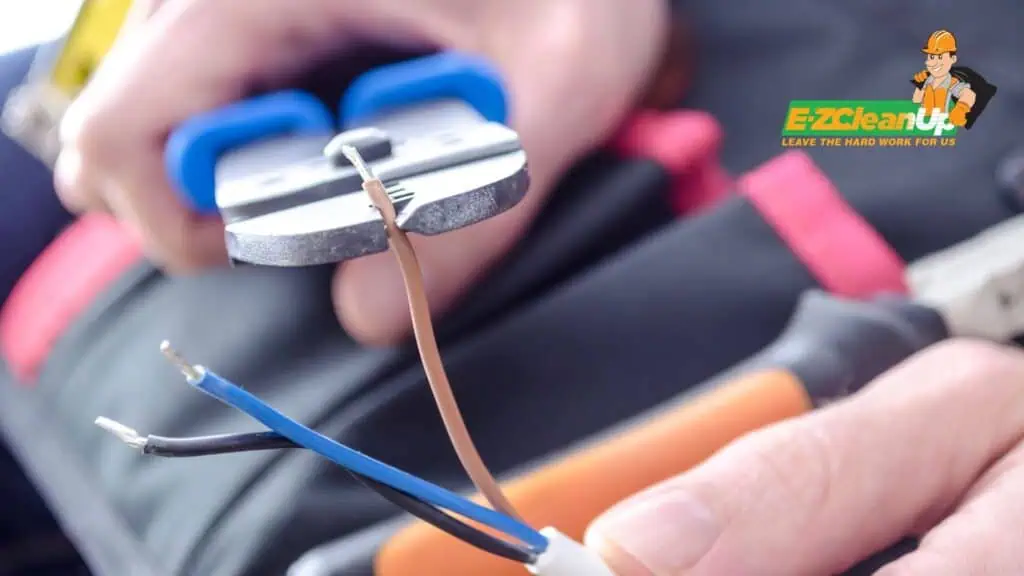
Preparing Wires for Sale (Cleaning, Stripping)
Preparing your wires for sale can significantly increase their market value. This involves stripping the insulation to expose the copper wire, which is generally more valuable when sold clean and separated from its insulating material.
Use a wire stripper tool to carefully remove the insulation without damaging the copper. Clean the copper of any dirt or corrosion using a mild cleaning solution or by lightly sanding the surface. Once cleaned and stripped, the wires are ready to be sold as scrap metal.
Reusing Electrical Wires
When considering the reuse of old electrical wires, the first step is to conduct a thorough physical inspection. You should look for any signs of wear, damage, or deterioration.
Key things to check include the flexibility of the wire, any visible cracks in the insulation, and signs of overheating, such as discolored or melted insulation.
Wires that have been bent or twisted extensively might have internal damage, even if the exterior appears intact. A multimeter can be used to check for electrical continuity and ensure that the wire can still conduct electricity effectively.
Common Devices and Projects That Can Utilize Old Wires
Old wires, if in good condition, can be repurposed for various applications. They are often suitable for low-stakes projects where high performance is not critical.
These include creating connections for secondary lighting systems, crafting DIY electronics, or for educational purposes like school science projects. Ensure that the wire gauge and insulation type are appropriate for the new application to avoid any electrical hazards.
Safety Tips When Reusing Electrical Wires
Safety is important when reusing old electrical wires. Always ensure that the wire’s capacity matches or exceeds the requirements of the application. It’s crucial to use only wires that have passed your initial inspection for reuse in any project.
Additionally, consider updating the insulation or using conduit if the existing insulation is outdated or damaged. Never reuse wires that show any signs of corrosion or damage, as these could pose serious fire risks or lead to electrical failures.
Recycling Electrical Wires
Recycling electrical wires conserves natural resources by reducing the demand for new raw materials like copper and aluminum, which are common in wire production. Additionally, recycling these metals uses significantly less energy compared to extracting and processing virgin materials.
This process also lowers greenhouse gas emissions. By keeping old wires out of landfills, we minimize environmental pollution and the potential leaching of metals into the ecosystem.
How to Recycle Wires (Sorting and Preparing)
To effectively recycle wires, start by sorting them based on their material composition—primarily distinguishing between copper and aluminum wires. You should strip the insulation from the wires to recover the valuable metals inside.
This separation is crucial, as clean metal fetches a higher price and is easier to recycle. Ensure that wires are free from attachments like plugs or connectors to facilitate the recycling process.
Finding Local Recycling Facilities that Accept Wires
To find recycling facilities that accept wires, you can start by visiting websites like Earth911, which offers a comprehensive database of recycling centers based on material types and geographical location.
You can also contact local waste management services or municipal recycling programs to inquire about e-waste recycling options. Some facilities specialize in electronics recycling and can handle wires and cables.
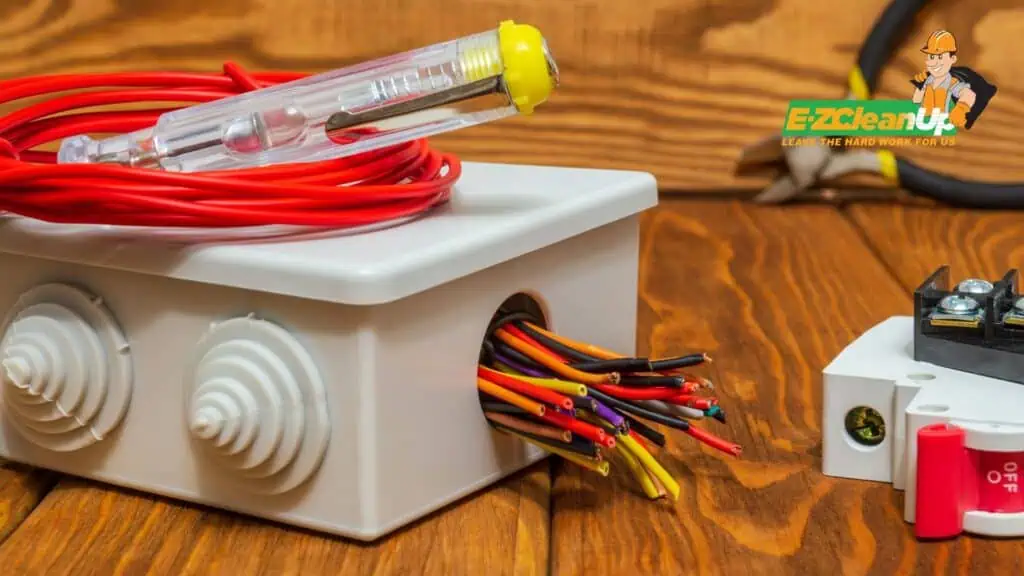
Donating Electrical Wires
Donating old electrical wires can be highly beneficial for educational and nonprofit organizations. Schools, particularly those with broad science, technology, engineering, and mathematics (STEM) programs, often require various types of wires for laboratory and project use.
Nonprofits that focus on technology education or that provide repair services to low-income individuals can also make good use of donated wires. You can also look into organizations that focus on wildlife and environmental education and will benefit from such donations for their operational or educational projects.
Benefits of Donating Wires for Educational Purposes
Donating wires to educational institutions helps provide practical learning experiences for students, especially in technical and engineering education. It allows students to work hands-on with real-world materials. This enhances their learning and problem-solving skills.
Additionally, by reusing materials, educational institutions can reduce costs and promote sustainability among the next generation of engineers and technicians.
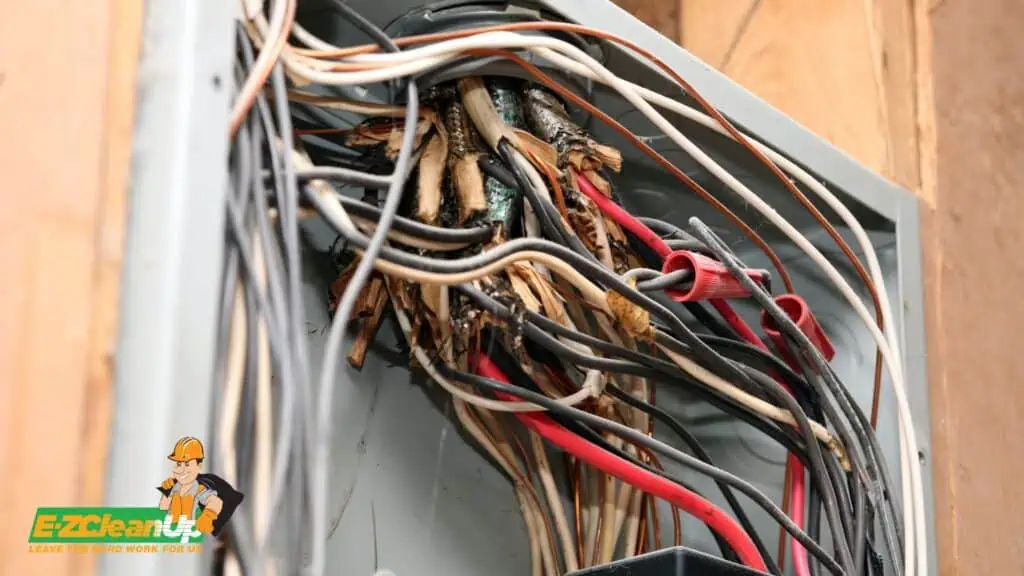
How to Organize a Wire Donation Drive
Organizing a wire donation drive involves a few key steps:
- Collection: Set up collection points in accessible locations and provide clear instructions on what types of wires are acceptable.
- Partnerships: Collaborate with local schools, universities, and nonprofits to ensure that the collected wires will be used effectively.
- Promotion: Use social media, local media, and community bulletins to promote the drive. Provide information on how the wires will be used and the environmental benefits of donating.
- Logistics: Plan for the transportation and storage of collected wires. Ensure they are kept safe and organized until they can be donated.
Upcycling Electrical Wires
Upcycling old electrical wires can turn them into stunning and useful art pieces and home decor. Creative projects include the following:
- Jewelry Making: Use colorful, flexible wires to craft jewelry like bracelets and necklaces. Shape the wires with pliers and wire cutters, and enhance them with beads or decorative elements to create unique accessories.
- Home Decor Items: Coil wires to construct wire bowls or baskets. Use molds to shape them and soldering to secure. These can serve as rustic or industrial-style fruit baskets or decorative containers.
- Wall Hangings and Wire Sculptures: Design and create wall hangings or sculptures by bending and twisting wires into desired shapes. Mount these designs on backgrounds or frames for stability and decorative appeal.
- Cable Organizers: Create organizers from stiff wires to manage and store electronic cables and chargers. Twist the wires into loops or clips that can hold and organize bundled cables.
- Decorative Lighting: Repurpose old wires to construct custom lighting fixtures such as lampshades or pendant lights. Wrap wires around frames and integrate safe electrical connections to create unique lighting solutions.
Each of these projects not only recycles old wires but also adds functional, artistic value to everyday items. They enhance both utility and aesthetics in your living space.
Commercial Solutions for Wire Disposal
Offices often face significant challenges when managing large amounts of electrical wire. This is primarily due to the physical clutter and safety hazards they present.
The accumulation of unused or obsolete wires can lead to disorganized workspaces. This results in reduced efficiency and an increased risk of accidents. Additionally, improperly managed wires can contribute to electronic waste. This can pose environmental concerns.
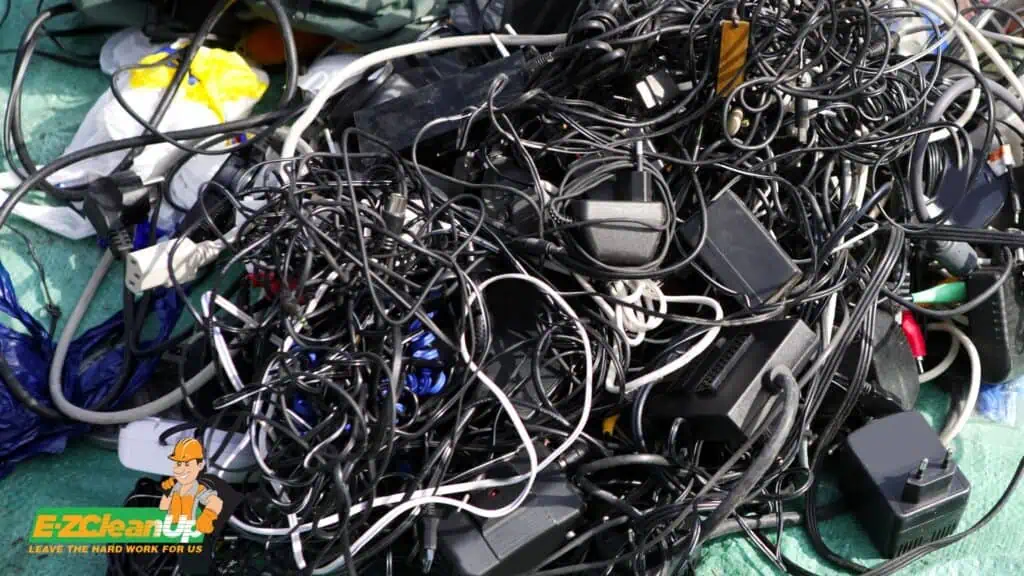
What to do About it?
If you’re dealing with a lot of wire waste, commercial cleaning services can save you a ton of time. These services can help businesses effectively sort, organize, and dispose of unwanted wires.
By employing specialized disposal methods, these services ensure that wires are recycled responsibly. The goal is to reduce environmental impact and help offices maintain compliance with e-waste regulations.
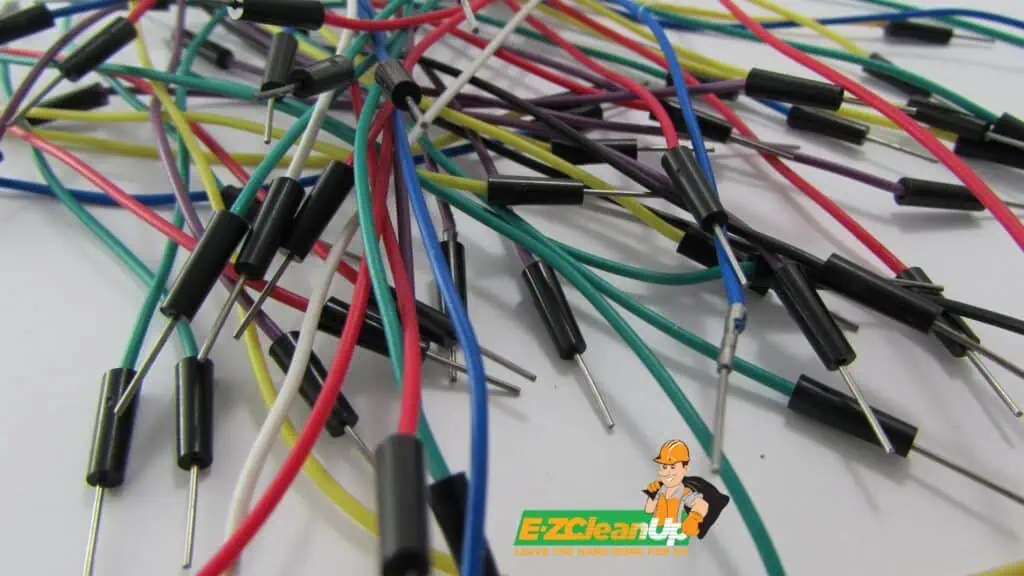
Declutter Wires with Ease
Don’t let wire disposal disrupt your workflow. Proper wire disposal is crucial for environmental and workplace safety.
When it comes to junk removal of all shapes and sizes—old mattresses, construction debris, appliances, wires, and more— We can haul them all away. We ensure your disposal needs are met professionally and handled in an eco-friendly way.
Ready to clear out those unused wires? Reach out to us for a free estimate.
